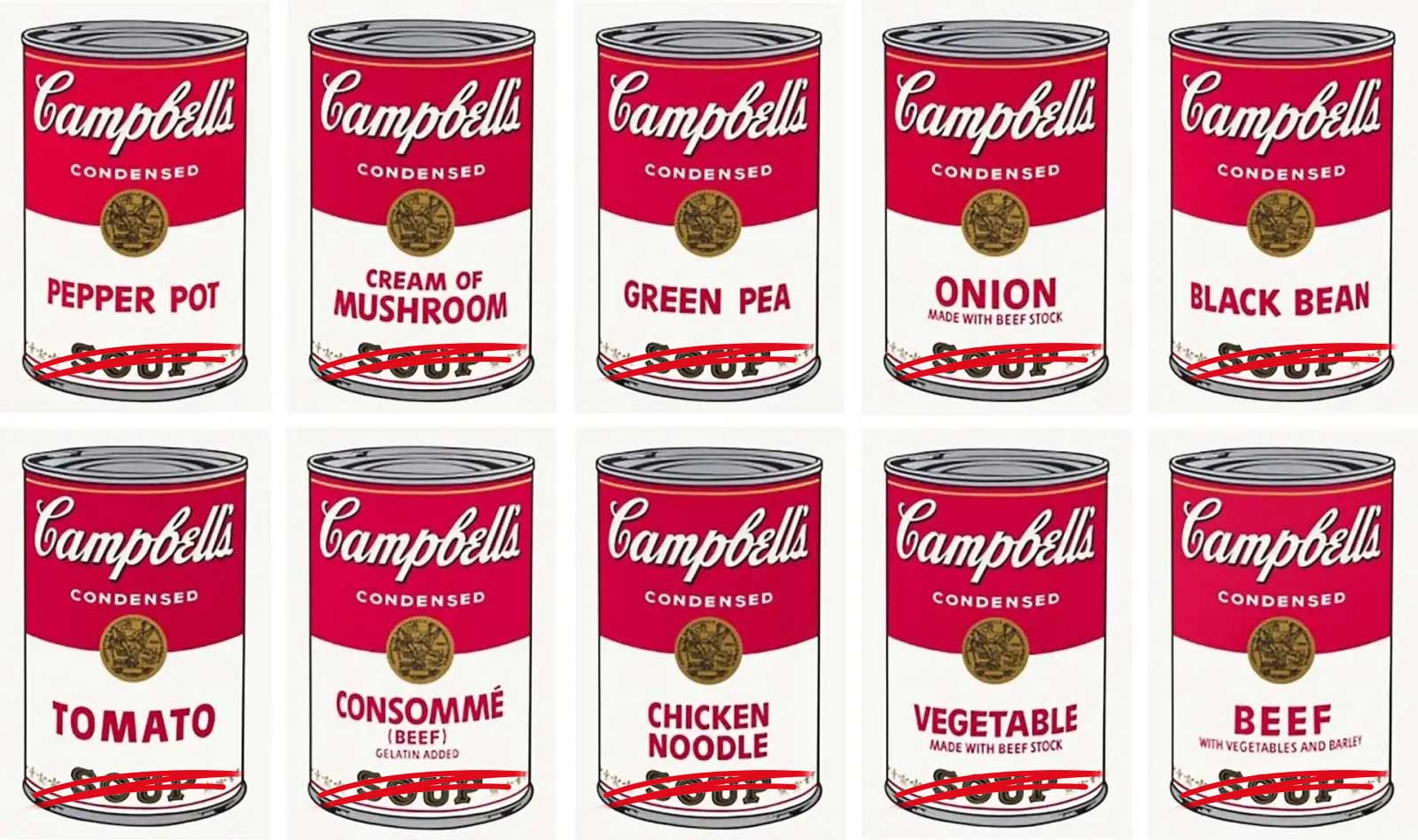After 150+ years of being a truly classic brand synonymous with a singular product, Campbell’s Soup Company is employing an “addition by subtraction” strategy starting today.
Today marks the day the company is taking “Soup” off its brand name (and its company name) in an effort to show consumers, grocers and Wall Street that it offers a menu much more expansive than simply being stocked with soup. The Campbell’s Company has evolved tremendously over the years, and perhaps the “Soup” moniker was seen as limiting.
Just as Dunkin’ recently ditched “Donuts” and Apple long ago deleted “Computer” from its name, brands see the need to move on from their original names as they step into new categories and product lines whose success might be hamstrung by a brand name that actually hurt its appeal to consumers.
Clearly, Campbell’s has become much more than soup, and if it wasn’t moving into a broader spectrum of products, I wouldn’t recommend re-branding, but this makes sense. “Soup” goes to a place that is now a descriptor and no longer the brand. That logic is not bad because it’s essentially been a single-product brand it’s entire history.
Does this diminish Campbell’s standing in the supermarket? I don’t think so because it’s so familiar to shoppers. In fact, I can’t imagine people would even blink if they no longer saw “Soup” on the can.
As Campbell’s pushes to gain new real estate on grocers’ shelves in different sections of the store, it’s such a huge advantage to bring this classic brand equity to the new labels. With such a long history that speaks to a history of trust and equity, this is incredibly important for not only consumer acceptance, but supermarket sell-in. When you’re a leader, it’s a lot easier to transport those qualities to other categories.
But the move is not without risks, obviously.
As the Campbell’s name enters new categories, it finds itself in a unique position: it’s not the leader in in these new categories. For example, if they decide to offer a Campbell’s Meat offering, they may have to be the “lean meat.” They will have to compete in these categories on the basis of the new qualities and characteristics that they are not known for. They may not be seen as making the transition comfortably.
And don’t forget, that new “Campbell’s Meat” product (or whatever they’re creating anew under the Campbell’s name), is going to have to be marketed. It’s a new product that needs to be introduced to consumers. Marketing success is never guaranteed for new food brands. The bar is pretty high in these new categories they are entering, mainly because the competition is already established and known.
But it seems to be a move worth taking. The company has clearly moved well beyond the soup aisle, as it possesses an impressive lineup of brands and products.
Mark Clouse, the company’s CEO, announced today that it was excited to make this “subtle, but meaningful change” to The Campbell’s Company. Andy Warhol recognized the iconic nature of the classic soup can with his art, so it will be interesting to see how consumers feel about the subtle deletion of the word “Soup” missing from its name.
Interestingly enough, in his LinkedIn post announcing the new name change, Mr. Clouse was still identified as “CEO Campbell Soup Company.” It’s clear the name change won’t come easy right away to everyone.
